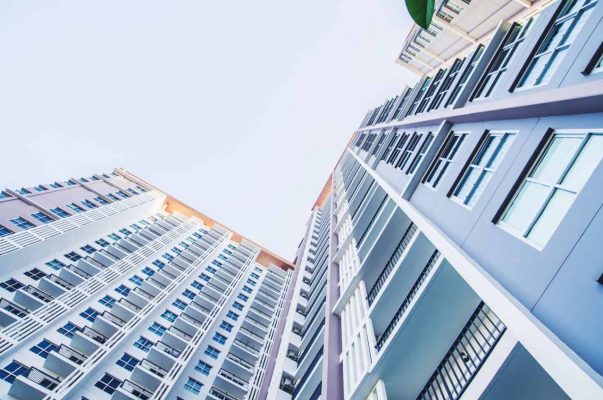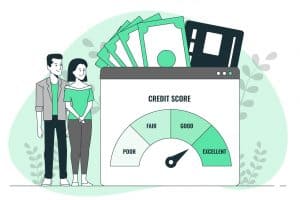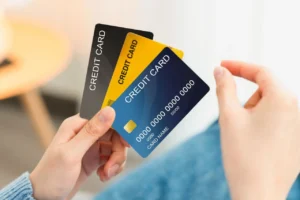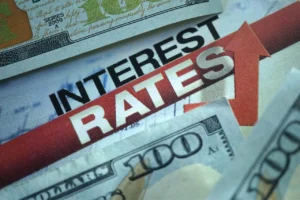Cash Over Valuation is a not-so-new kid on the block that you may have to worry about if you’re looking to buy a resale HDB apartment. As per the Straits Times, 1 in 3 HDB resale condo buyers paid COV on their resale flats in 2021.
There’s a reason for the re-emergence of COV in the real estate scene: the high demand, an insufficient supply of HDB resale flats due to delays in BTO project launches, and the pandemic saw more individuals working from home.
And the bigger the demand for housing, the higher the COV becomes because of high resale property costs.
What is Cash Over Valuation (COV)
Cash Over Valuation is the difference (or premium) between a resale HDB condo’s actual valuation by HDB and its sale price. It’s referred to as ‘cash over valuation’ since you pay for it in cash on top of the space’s current valuation.
If, for instance, the agreed sale price of an apartment between a seller and buyer is S$530,000 and its actual valuation is S$500,000, the COV is S$30,000. You can’t include the COV in the credit amount you take from a bank or a HDB home loan. Or tap into your CPF OA (Ordinary Account).
COV only works for resale HDB flats, not private property or BTO (Built-To-Order) apartments. This is because BTOs are always purchased from HDB. Hence, their selling price and valuation are always similar.
How COV Affects Stamp Duty?
Stamp duty is the tax that the Inland Revenue Authority of Singapore (IRAS) imposes. It imposes the tax when a property is sold, leased, bought, or rented. You’re expected to pay stamp duty in all property transactions in Singapore, except in several special cases.
The stamp duties needed in the transaction are determined by whichever is higher- the selling price or valuation. This is the opposite of the LTV (Loan-To-Value) calculation, which is calculated through the lower valuation and not the higher transaction cost.
With the above illustration as a reference, your Buyer’s Stamp Duty (BSD) and Seller’s Stamp Duty (SSD) (if suitable) are based on the purchase cost of S$530,000.
How COV Affects Sellers?
It affects sellers in one main way: While the daily prices of resale transactions as soon as they’re registered are available, the prices don’t indicate how much COV was paid for the transactions. Most sellers refer to the recently transacted prices so they can price their flat for sale.
The seller may be shocked when a potential buyer withdraws from the deal if these prices include a COV component. This is because the valuation is lower than they anticipated.
How COV Affects Buyers?
Most buyers don’t have to pay a COV, which is a good thing. However, the figures may not reflect the realities of the deals.
You, as a buyer, can get into a situation where you have to part with some additional money to complete the purchase or surrender your option. This is because the valuation is only received after the cost is agreed upon.

COV Changes Over The Years
Here’s a summary of COV’s transformation over the years:
- Before, sellers and buyers in the HDB resale market would broker using COV as a standard rather than using the official valuation as a guide.
- Prices reached an unbelievable high in 2011, with a resale flat buyer paying a COV at a higher price than $36,000. A maisonette in Bishan had a higher COV of $250,000.
- HDB did away with COV in 2014 by not printing COV prices. It also introduced a new structure where sellers and buyers first negotiate flat prices before the COV is revealed.
- The new policy was a success, as in 2015, the median COV costs had lowered by nearly $32,000. Sellers sold almost 80% of all resale HDB condo transactions without COV. COVs are currently an occasional matter.
Is It the End of COV?
Not yet. It might not be making a frequent appearance after the policy change in 2014, but several reports reveal there has been a COV comeback in the HDB resale market. The reappearance is due to the demand for larger homes, construction delays, and BTO projects being pushed back.
The usual COV numbers range from $10,000 and $50,000, with buyers looking to secure excellent apartments paying a whopping $200,000 for choice condominiums. This is mostly the case in places like Yishun and Woodlands. The COV was a jaw-dropping $40,000 from an HDB living space in Sembawang!
Always secure the OTP before getting a valuation (OTP is non-refundable). You may end up paying lump cash if you’re too insistent in your offer.
You may expect COV to resurface in these living spaces:
- Apartments that stand a good chance of SERS (Selective Enbloc Redevelopment Scheme) in their owner’s eyes.
- Non-standard condos like DBSS (Design, Build and Sell Scheme) flats, maisonettes, and dual-key units.
- Units that have been through extensive revamping and have cool features like kitchen islands or walk-in wardrobes.
- Apartments that are close to popular learning institutions or that are in attractive locations like Tanjong Pagar.
See Also: The Complete Guide to HDB Grants
Scenarios Where You May Still Expect COV
Here are some cases where COV might still be in the picture:
1. DBSS or Rare Apartments
Sellers sold thirteen living spaces at or above $1000,000 in October. Their COV is no longer out there since HDB no longer prints them.
However, we can obtain some info from the Straits Times, which reveals million-dollar condos that dated back to 2016 had a COV of between $195,000 to $250,000.
2. Buyers Opting for Resale Flats and Not ECs
Some buyers prefer resale living spaces to fully private condos or ECs (Executive Condominium). Resale flats don’t have an income ceiling. Moreover, an EC’s average price is roughly $1,565 psf at the moment.
Therefore, a typical 1,000 sq. ft. family living space would be roughly 1.5 million, with minimum cash down payment of $75,000. Buyers weren’t ready to handle unreasonable COV prices. As such, they settled for expensive resale condos.
3. Supply in the Preferred Location
It’s no secret that a record figure of resale flats is available in the market. Experts believe that 50,000 apartments reached the Minimum Occupation Period (MOP) in 2020 and 2021.
These flats won’t always be available where buyers need them. As such, they’re forced to pay COV so they can own them.
4. Personal Comfort Over Resale Gain
Some buyers aren’t really into rental yields or resale gains. They want a living space that offers them personal comfort. They don’t mind paying a mind-blowing COV for the resale flat as long as it’s in an attractive location and they plan on spending the rest of their lives in it.
5. Consequences of the Latest BTO Launch Exercises
August 2020’s BTO launch exercise included some of the most desirable mature estates in Singapore, namely:
- Tampines GreenCrest, GreenGlade, and GreenOpal
- Bishan Towers
- Kebun Baru Edge (Ang Mo Kio)
- Dakota One (Geylang)
Although some BTO applicants weren’t so welcoming of the idea of paying more to get the flats, others readily chucked out more. It was a good deal since it meant a prospective buyer could move in without waiting for construction. Plus, they secured their dream home, so win-win!
Can You Avoid Paying COV?
Fortunately, yes. There are some straightforward steps you can use to minimize or avoid paying the COV if you’re all set to enter the resale HDB market as a buyer:
1. Do Your Homework in Collecting Research Data
Mostly details from past deals. A reliable tool that you can use is HDB’s Resale Flat Price Checker. It enables you to check past transactions across various estates and property types.
This is crucial since you’ll have a rough idea of the going price of similar spaces in your dream flat’s neighborhood.
2. Have a Look at Property Websites With Publicly Viewable Listings
This helps you get the best deals and know similar properties within an estate’s average asking price. And determine if they’re worth your time and money or not. Remember to compare sites before settling for a specific figure, as some sites offer false information.
You can tell a site is unreliable if:
- It doesn’t have contact details or author info.
- There are plenty of grammatical errors in its reports.
- It doesn’t have a name.
- It has misspelled domains- simple mistakes like o instead of 0 make the cut.
- It doesn’t have a copyright policy, privacy policy, or terms of use pages. And the pages are filled with mistakes, copied, or incomplete if available.
3. Get an Expert’s Opinion
There are plenty of ins and outs in the real estate arena. One false move and you might end up paying (a ridiculous amount of) COV without intending it. Professional real estate agents can help you escape the trap.
They have the know-how, are well connected and versed with matters COV, and they might offer resale flat options that fit your budget.
Other Things You Need To Know
1. What Happens If The Valuation is Lower Than the Selling Price?
The sale can proceed as long as the buyer agrees. Alternatively, they can let the option lapse, meaning the OTP fee will be surrendered.
2. And if It’s Higher?
The sale can go on if the buyer agrees. This is because the seller has to sell the living space at the agreed price once the OTP is granted.
3. How Does HDB Calculate Valuation?
HDB is an apartment’s valuer when it comes to purchasing a condo. This applies even if you take a bank loan or HDB housing loan. It basically means HDB has to value all HDB resale transactions before the sales can continue.
If the resale price is higher than HDB valuation, you must pay for the difference between the resale price and valuation (i.e., COV) using cash only.
HDB valuation process involves it using the market value of similar condos in the same area. It then assigns a valuer to determine the living space’s actual valuation.
Final Word
COV doesn’t have to hinder you from owning your ideal HDB resale flat. It’s not so common these days, thanks to the 2014 policy change. And you can avoid paying it by researching, asking the experts, and taking your time before buying a flat. The road to owning a resale flat might not be easy, but the resulting beautiful home is a worthwhile motivation.
Key Takeaways
- The demand for housing is due to delays in BTO projects and construction, which resulted in higher resale property prices.
- COV also resurfaced in the real estate scene because more and more people are shifting to a full work-from-home setup.
- You can’t pay for COV with HDB housing loans or your CPF savings.
- You can avoid paying for COV by consulting an expert, using HDB’s Resale Flat Price Checker, and checking property websites with publicly viewable listings.
- COV only works for resale HDB condos and not BTO apartments.
In need of fast cash loans? Instant Loan can effectively connect you with top financial institutions in Singapore that you can trust. Get your three free loan quotes today, and pick the most suitable terms for your needs. No commitment required!








